Biography of Robert Boyle, the discoverer of Boyle's law

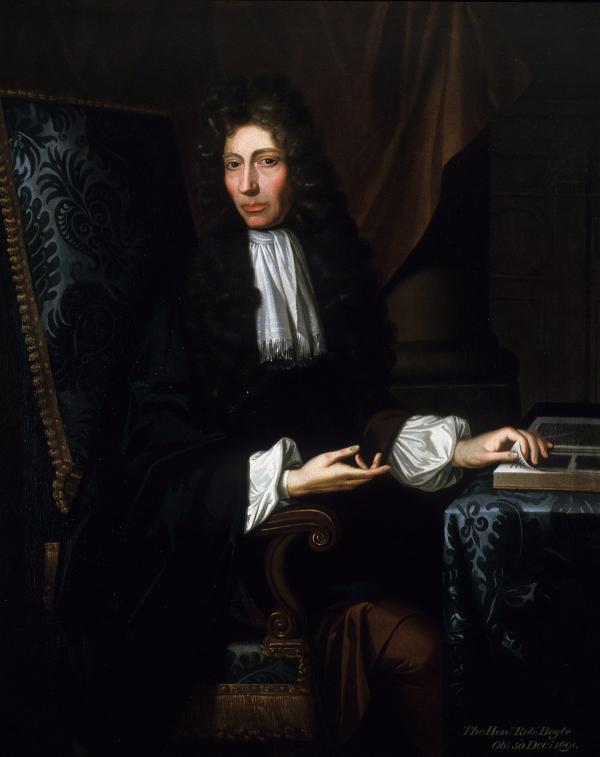 Robert Boyle
Robert BoyleSummary of Robert Boyle's biography:
Full name: Robert Boyle
Date of birth: January 25, 1627
Place of Birth: Lismore Castle, County Waterford, Ireland
Nationality: Irish, English
Profession: chemist and physicist
Known for: discovery of Boyle's law, physicalism, founder of modern chemistry
Died: December 31, 1691
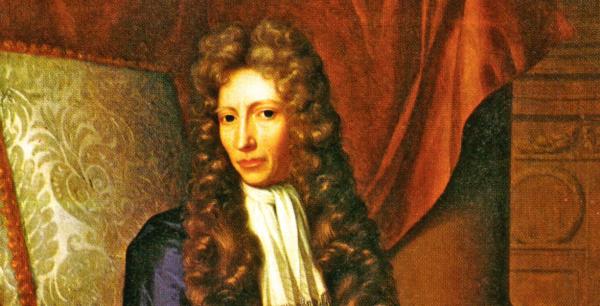 Biography of Robert Boyle
Biography of Robert BoyleBiography of Robert Boyle
In this section, we will review the life and early discoveries of Robert Boyle, an eminent English chemist and physicist. Robert Boyle was born on July 25, 1627 in Lismore Castle, County Waterford, Ireland. He grew up in a religious family committed to the teachings of the Catholic Church, and this influence of religion on his life and personality was significant.
Education of Robert Boyle
At the age of 8, Robert Boyle was able to master Latin, English, French, Hebrew, and Greek languages. After three years of studying, he traveled in Europe and then went to England and entered the Oxford Scientific Research Center. This school provided him a field of activity and research in some scientific subjects such as chemistry and physics.
Discover Boyle's Law
One of the most important discoveries of Robert Boyle is Boyle's law. This scientist discovered a law that greatly contributed to the science of chemistry and physics. This law is known as Boyle's law and briefly states that the volume multiplied by the air pressure is a constant number. In other words, when the pressure on a gas increases, its volume decreases in a predictable process. This basic law is very important in the physics of gases and their balance, and it has been confirmed and accepted by other scientists.
The story of this great discovery goes back to 1654, when Robert Boyle established his own laboratory to continue his studies more widely, after a year he met Robert Hooke and later hired him as his assistant. .
In 1654, Otto von Gurick was able to invent the vacuum pump, this invention attracted Robert Boyle after three years, this scientist decided to improve Gurick's initial designs after discussions with Ra Hook. Along with this, they also designed several experiments to research the structure and characteristics of air, these efforts led to the creation of Boyle's law. To calculate the pressure, these scientists poured the amount of mercury into the tube and by conducting various experiments, they were able to understand the relationship between the mentioned units.
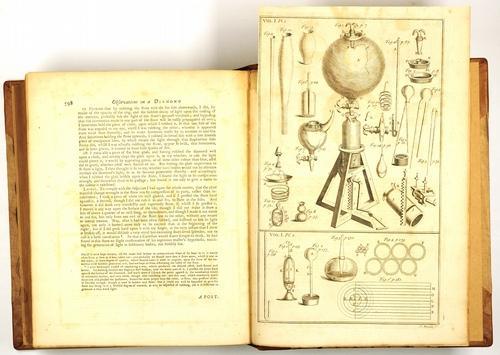 Boyle's law was discovered by Robert Boyle
Boyle's law was discovered by Robert BoyleParticipation in the development of science
Robert Boyle is one of the most prominent and successful scientists in the history of science, who actively contributed to the development of science and knowledge of chemistry and physics. He did many activities in various fields, including isotopes, hydrogen energy, and the movement of matter particles. Also, he continued research on heat and continuous motion and developed the atomic theory and the study of matter from the perspective of particles.
Scientific heritage and impact on society
Robert Boyle's works and influences in chemistry and physics are extremely significant. By discovering Boyle's law and his research in various fields, he provided the most basic and fundamental scientific principles for future scientists and chemists. He is known as one of the greatest natural scientists in history and has had a great impact on the scientific community and the general public.
One of the great actions of Robert Boyle was to write the book “The Skeptical Chemistry”. This book, which was published in 1661, had a profound impact on the growth and development of chemistry. In this book, he separates chemistry from the more mystical concepts of alchemy. The concepts that Boyle uses in his book are based on Galileo's principles.
Boyle's purpose for publishing this book; The transformation of chic into science is quantitative, as he also offers a new definition for the elements. He calls an element a simple substance that does not have the ability to decompose into other substances. In Boyle's definition, by combining various elements, a new substance is created, which is called a chemical compound.
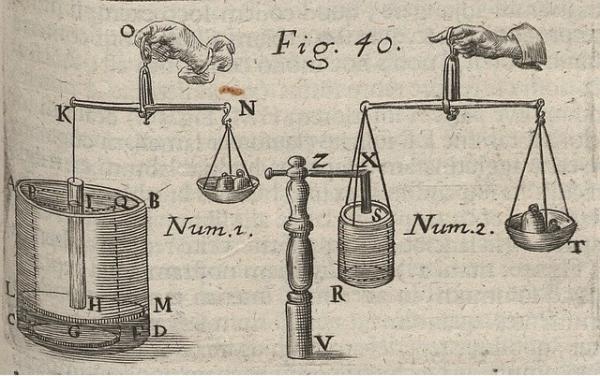 Boyle's Law Images Robert Boyle
Boyle's Law Images Robert BoyleSome awards and honors
During his lifetime, Robert Boyle received many awards and honors for his discoveries and research. He was elected a member of the Royal Society of London in 1679 and served as its president in 1688. Also, in 1691, in his honor, one of the great astronomers and guests of honor gathered to honor him and express their appreciation for his scientific efforts.
Cultural inheritance and cultural influence
Robert Boyle, as one of the greats in the history of science and culture, has left a lot of cultural heritage on the society. With his discoveries and research in various fields, he created a way for future scientists and had a cultural and scientific impact on society. Robert Boyle also expressed his unique views through his writings and published them. He had many writings in various fields including chemistry, physics, philosophy and social issues. These writings led to discussion and exchange of opinions in the scientific and cultural communities and had great effects among the society.
Last years and death
Robert Boyle experienced problems in the last years of his life due to age related diseases and physical weakness. He died on December 31, 1691 in London. He was buried in St. Martin's Church in his hometown in Ireland.
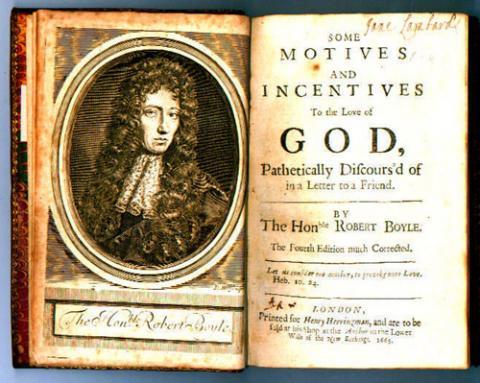 Books and works of Robert Boyle
Books and works of Robert BoyleA final word about Robert Boyle
Robert Boyle, an eminent English chemist and physicist, is known as one of the greatest natural scientists in history with his discoveries and research in various fields of chemistry and physics. The discovery of Boyle's law and his research in various fields, including chemistry, physics and philosophy, have had a great impact on the scientific and cultural community. His scientific and cultural heritage continues to this day and his theories and ideas are still discussed in scientific communities.
compilation: Cover biographical section





